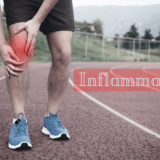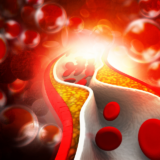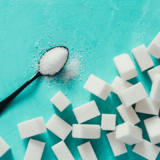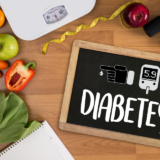The Cholesterol Story





What is cholesterol, after all?
Nature didn’t place cholesterol inside our body, for no reason. It is necessary for our survival, for our very existence. The bad publicity cholesterol gets may need to get re-looked at – let’s look at some facts.
What is cholesterol, after all?
Cholesterol is a fatty substance (lipid) that is made by all our cells. It is primarily made by cells in the liver and the intestines – in fact, up to 80% of it. It is vital to human life. It is an organic molecule. It is bio-synthesized by our body cells and is an essential structural component of our cell membranes. Our body needs some cholesterol to make hormones, vitamin D, and substances that help us digest foods. Our body makes all the cholesterol it needs.
What does it do inside the human body?
Cholesterol has several functions inside the human body. Major among these functions include –
- Making of cell membrane: Cholesterol helps to regulate membrane fluidity over the range of physiological temperatures.
- Precursor molecule in several biochemical pathways: Within the cells, cholesterol serves as the precursor molecule in several biochemical pathways. In the liver, cholesterol is converted to bile. Bile helps in making the fats more soluble. Bile helps in emulsification of fats, i.e., it helps in mixing of two or more liquids that are normally immiscible (unmixable or unblendable) and helps in their absorption. Bile salts also aid in absorption of fat soluble vitamins like Vitamins A, D, E and K.
- Nerve cells and cholesterol: The nerve cells are covered with a protective layer or myelin sheath. The myelin sheath is rich in cholesterol.
How much cholesterol does the body normally produce?
A human male weighing 68 kg (150 lb) normally synthesizes about 1 gram (1,000 mg) of cholesterol per day, and his body contains about 35 g, mostly contained within the cell membranes. Cholesterol can also be obtained from food. Saturated fats in food can be converted to cholesterol. Typical daily additional dietary intake is about 200–300 mg. The body compensates for cholesterol intake by reducing the amount synthesized. This occurs by reduction of synthesis of cholesterol, re-utilization of the existing cholesterol and excretion of excess cholesterol by the liver via the bile into the digestive tract.
Typically about 50% of the excreted cholesterol is reabsorbed by the small intestines back into the bloodstream for reuse.
What are LDL and HDL then? | How is cholesterol transported in the body?
When we talk of cholesterol, most often we hear of LDL and HDL. LDL and HDL are lipoproteins. Lipoprotein gets its name from ‘lipid’ (fat) and protein. It’s a complex biochemical assembly that can do something that otherwise looks not possible – LDL and HDL help the body transport ‘fat’ inside ‘water’. That means LDL and HDL help transport fatty substances like cholesterol in ‘water’ as in ‘blood stream’ or other ‘extracellular fluids’. Lipoproteins are needed because fats (viz., cholesterol) are insoluble in water, they cannot be transported on their own in extracellular water, including blood plasma. HDL removes fat molecules from cells which need to export fat molecules. LDL delivers fat molecules to cells. That way, LDL and HDL support transportation of cholesterol inside the body.
Preventing plaque build-up and heart health | what can be done to lower risk of heart disease?
One of the primary things to know about heart health is this – LDL can contribute to atherosclerosis if it is oxidized within the walls of arteries. Atherosclerosis is plaque build-up inside our arteries. Arteries are blood vessels that carry oxygen-rich blood to the heart and other parts of the body. Plaque is made up of fat, cholesterol, calcium, and other substances found in the blood.
Here are few questions to ask – this can potentially lower the risk of heart diseases.
- Are you regular in exercising? Almost everyone knows about the many benefits of doing exercise regularly. It helps in strengthening your heart and improving your circulation. It can also help you maintain a healthy weight and lower cholesterol and blood pressure. These can potentially lower your risk of heart disease.
- How is your body weight? It is always beneficial to keep your weight under check. Though imperfect, maintaining a BMI (body mass index) of 20-25 is a good initial strategy. Being overweight or being obese can increase risk of cardiac disease. This is mostly because obesity and overweight are linked to other heart disease risk factors, including high blood pressure, and diabetes. Keeping weight under control can lower the risk of heart disease.
- Are you getting adequate sleep? If there is sleep deprivation, the risk of high blood pressure, obesity, and diabetes is raised and therefore it raises the risk of heart disease. An average adult needs ~8 hours of sleep per night. Sleep problems, especially sleep apnea, causes people to briefly stop breathing many times during sleep. This interferes with your ability to get a good rest and can raise your risk of heart disease. If you think you might have it, it needs to be resolved with the help of a healthcare provider.
- Are you on a healthy diet? Try to limit saturated fats, foods high in sodium, and added sugars. Eat plenty of fresh fruit, vegetables, and whole grains.
- Are you managing diabetes well (in case, you are diabetic)?Being diabetic doubles your risk of heart disease. Spread over a relatively long period of time high blood sugar from diabetes can damage your blood vessels and the nerves that control your heart and blood vessels. So, it is important to keep it under control, if you have it.
- Are you managing stress well? Stress de-prioritizes many body parts and body functions as it is body’s ‘fight or flight’ response to perceived external danger – the only priority for the body during such time is bodily safety. It is, therefore, linked to heart disease in many ways – as muscles need to stay in an elevated state of alertness to ‘protect’ the body, it can raise your blood pressure. It can de-prioritize heart health maintenance and in some cases, can potentially cannibalize heart muscles to produce energy for use by muscles necessary for ‘protection’ from danger (remember the ‘fight or flight response’). Also, some common ways of coping with stress, such as overeating, heavy drinking, and smoking, are bad for your heart. Some ways to help manage your stress include exercise, listening to music, focusing on something calm or peaceful, and meditating.
- Are you limiting alcohol consumption (if you do)? Drinking too much alcohol can increase load on liver for metabolizing it and can make the liver less available for important functions such as detoxification. In the relative absence of detoxification, resultant free radical damage or oxidative stress can cause increased risk of heart disease by contributing to atherosclerosis (for example, if LDL is oxidized within the walls of arteries in relative absence of anti-oxidant protection).
- Are you smoking? Cigarette smoking raises blood pressure and in turn raises risk for heart attack and stroke. Quitting smoking, if you smoke, will lower your risk for heart disease. Avoiding association that smokes, setting some positive life goals can potentially help quit smoking.














7 comments
Jean Michelle
August 23, 2022 at 9:40 am
Good post. I learn something new and challenging on blogs I stumbleupon everyday. It will always be interesting to read articles from other authors and use a little something from their sites.
Victoria Agnel
August 27, 2022 at 4:31 am
I must thank you for the efforts youve put in writing this site. I really hope to check out the same high-grade content from you in the future as well. In fact, your creative writing abilities has inspired me to get my very own site now 😉
Arthur Mark
September 9, 2022 at 7:01 pm
Write more, thats all I have to say. Literally, it seems as though you relied on the video to make your point. You definitely know what youre talking about, why waste your intelligence on just posting videos to your blog when you could be giving us something informative to read?
Edwards
May 4, 2024 at 12:10 pm
Excellent read, I recently passed this onto a colleague who has been performing a little research on that. And the man actually bought me lunch because I came across it for him smile So allow me to rephrase that: Appreciate your lunch!
Aliza Rinks
May 7, 2024 at 5:36 am
Yay google is my queen aided me to find this great site! .
loraine_quam
May 18, 2024 at 7:59 am
This article was incredibly insightful! I was captivated by the thoroughness of the information and the clear, engaging way it was delivered. The depth of research and expertise evident in this post is remarkable, significantly elevating the content’s quality. The insights in the opening and concluding sections were particularly compelling, sparking some ideas and questions I hope you will explore in future articles. If there are any additional resources for further exploration on this topic, I would love to delve into them. Thank you for sharing your expertise and enriching our understanding of this subject. I felt compelled to comment immediately after reading due to the exceptional quality of this piece. Keep up the fantastic work—I’ll definitely be returning for more updates. Your dedication to crafting such an excellent article is highly appreciated!
loraine_quam
May 18, 2024 at 2:15 pm
This article was incredibly insightful! I was captivated by the thoroughness of the information and the clear, engaging way it was delivered. The depth of research and expertise evident in this post is remarkable, significantly elevating the content’s quality. The insights in the opening and concluding sections were particularly compelling, sparking some ideas and questions I hope you will explore in future articles. If there are any additional resources for further exploration on this topic, I would love to delve into them. Thank you for sharing your expertise and enriching our understanding of this subject. I felt compelled to comment immediately after reading due to the exceptional quality of this piece. Keep up the fantastic work—I’ll definitely be returning for more updates. Your dedication to crafting such an excellent article is highly appreciated!